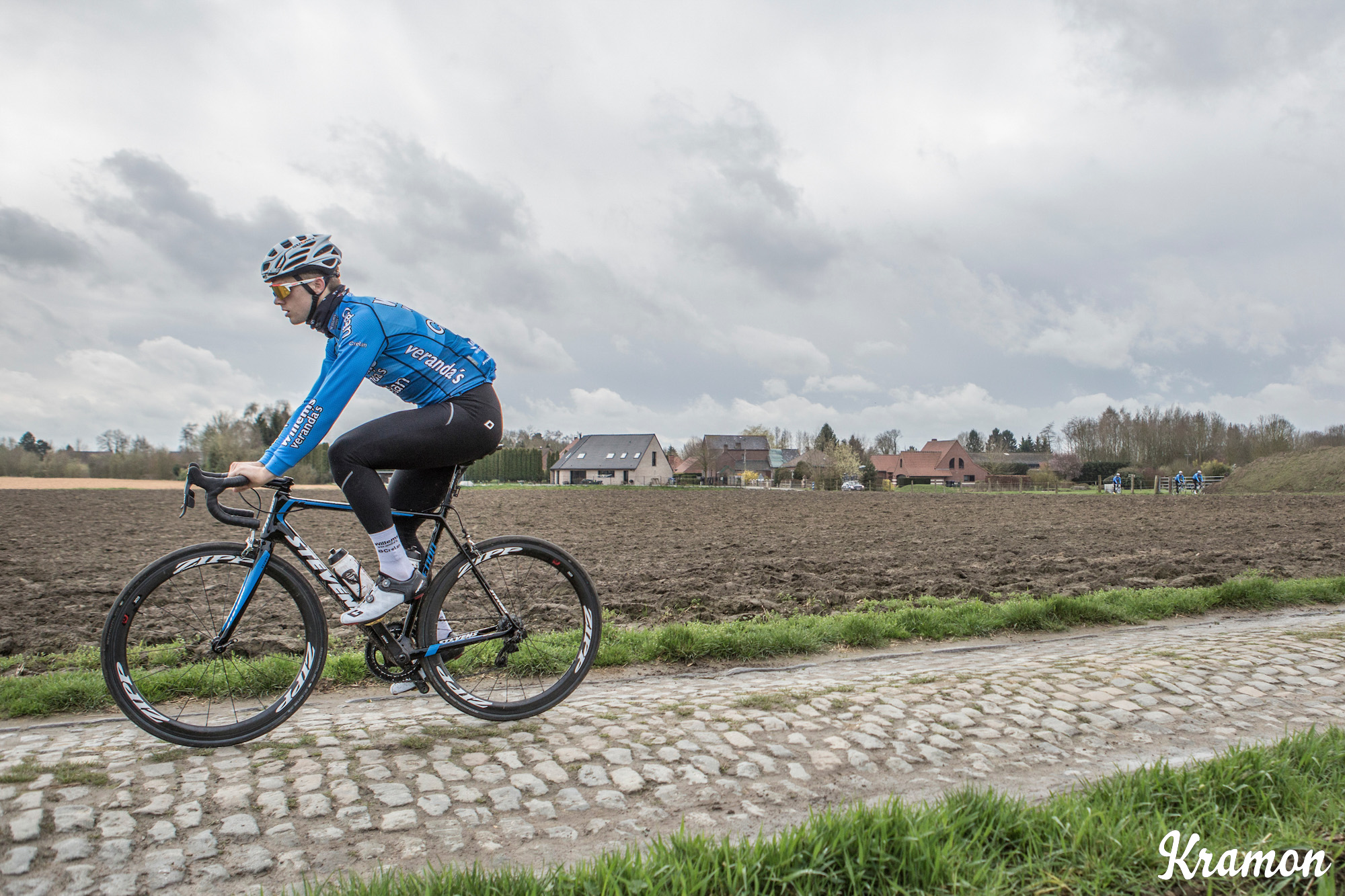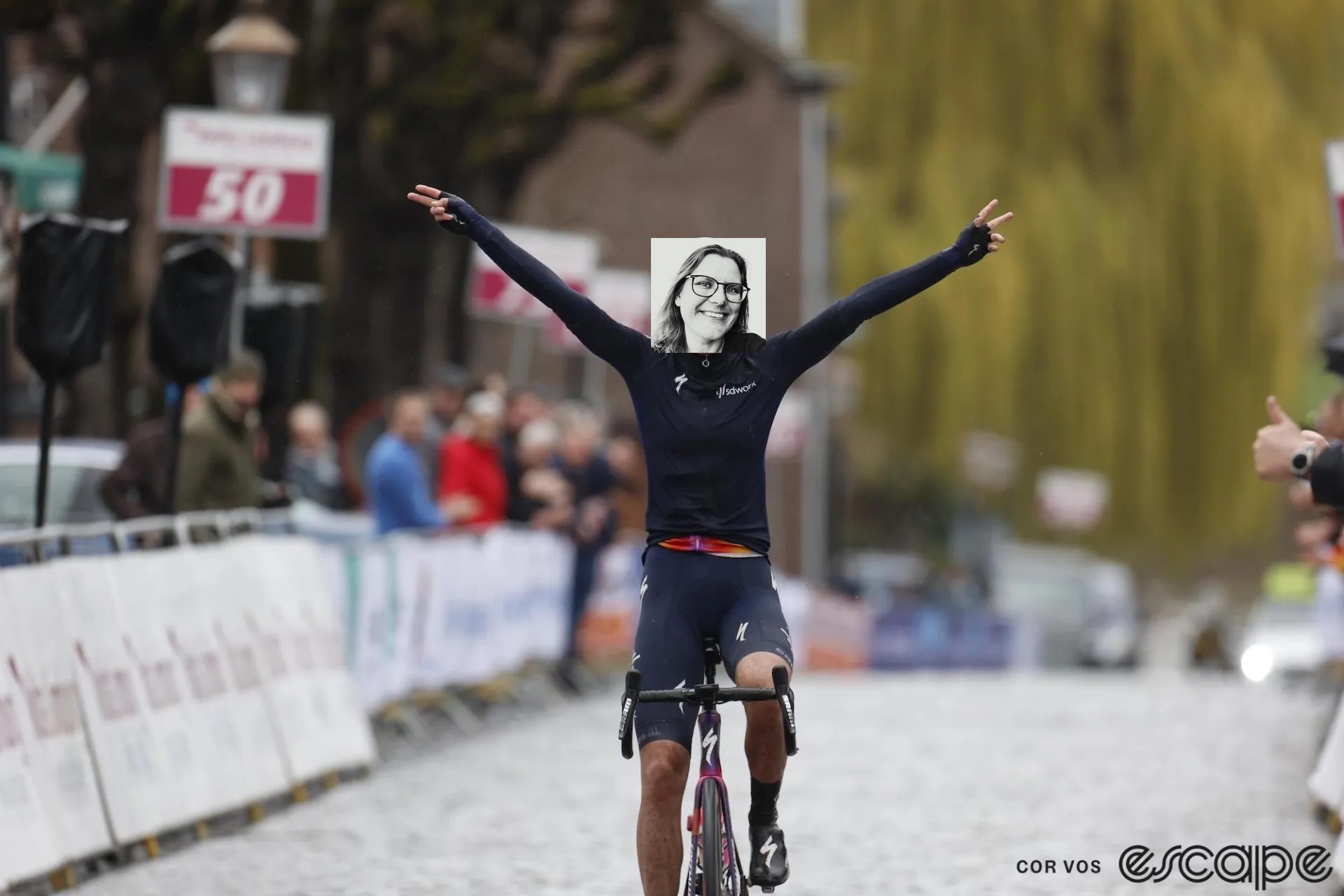Welcome to our year-end Favourite Stories series. To pick the best of our over 1,000 stories published this year, we assigned each of our staff and core contributors to write about someone else. Today, Joe Lindsey examines what makes José Been’s work such a beautiful window on humanity.
I’ll admit: I’m a little intimidated by our contributor José Been. Maybe it’s her encyclopedic knowledge of the sport, or how she’s the only Escape Collective staffer or contributor who also does TV commentary, and so she knows how to pronounce all the names that I mangle. Or more broadly that she speaks five languages to my 1.2 (three years of high-school French just ain’t cutting it).
But I also love her passion for bike racing, in particular finding the quieter, more intimate stories of the sport: the up-and-coming riders who might become stars, but who she interviews and profiles with a genuine interest for who they are in that moment more than what they might one day be. Or the delightful, quirky cultural previews she does for our Tour de France coverage. Two of José’s best qualities are her curiosity and her empathy, her ability to see the full human, and those are at the heart of the five stories I’ve selected to feature here from her fantastic work for Escape Collective this year.
The paracyclist who is making gravel racing more inclusive
As a somewhat casual follower of the gravel-racing scene, I only peripherally knew about Meg Fisher before José’s profile of the four-time Paralympic medalist who’s found a second career racing on dirt. José’s thoughtful profile illustrated Fisher’s dogged determination (the horrendous conditions that hampered many racers at this year’s Unbound was a challenge of a different level for Fisher, who lost the lower part of her left leg in a car crash and rides with a custom prosthetic that’s made for pedaling (but not walking through Unbound’s peanut-butter mud), but is also a keystone of her efforts to grow gravel racing by leveraging its inclusive ethos to welcome other para-athletes.
Read “Meg Fisher is growing gravel one paracyclist at a time” here.
A haunting, beautiful elegy for a rider gone too soon

José’s second story for us packed an emotional punch. Five years after the tragic and untimely death of Belgian pro Michael Goolaerts, who suffered a fatal heart attack while racing Paris-Roubaix, José journeyed to Goolaerts’ hometown to talk with his parents, Staf and Marianne, about that awful day and the family’s complex and nuanced relationship, five years on, with the sport their son loved. Staf, for instance, can’t bring himself to watch races anymore, not in real life or on TV. But Marianne does. “In every race, I see riders his age and you always wonder what Michael would have done,” she told José. “There are no answers to that. Yet I still want to see the races because unconsciously I am still searching the peloton for Michael.”
Read “Michael Goolaerts rides on in memory” here.
TdF culture guides
In June, José is hard at work on our cultural guides to each stage of the Tour de France and Tour de France Femmes. These are not an Escape Collective innovation; media outlets have been doing cultural asides on the race as long as it’s been around. But I’d submit no one does them better than José. Stories of precious gems recovered from a plane crash, or the lineage of the Bourg-en-Bresse region’s prized poultry, the role of the Col du Saisies in World War II, regional food and wine, and of course the history of the race itself all feature in her delightful looks at the regions the race visits. It’s hard to pick just one to include here, but as the son of a geologist, my own faves are when José explores the forces that created some of the most iconic locations in the sport. I mean, who can resist a piece that begins, “It’s volcano time!”
Read “Your cultural guide to the 2023 Tour de France stage 9” here.
To catch a rising star
“I want to profile Mischa Bredewold” was the note from José about assignments for June. The young Dutch racer on SD Worx had just won a stage and led the Thüringen Ladies Tour for three days, and while I wasn’t entirely sure Bredewold was on the verge of a breakout given the stack of talent on her team, I’ve learned to trust José’s eye for talent and timing. Good thing. Just a couple of months after publishing José’s profile of the promising young pro, Bredewold notched the two biggest wins of her young career at the Classic Lorient and then weeks later with the European road championships, where she won with a bold, late-race move. As an editor, I love to be able to offer readers context on a new name or face when that rider breaks through, and with José’s prescient storytelling, we did just that.
Read “Meet Mischa: Is Bredewold the next SD Worx star” here.
A heartfelt expression of gratitude for a great
I picked this one because it showcases José’s deep connections in the sport and her approach to covering it, which starts by seeing the whole person rather than just the two-dimensional “racer” we see on TV in her World Champion or race leader’s jersey. José takes us through the evolution of women’s cycling from Annemiek van Vleuten’s first pro season, in 2008, to now, and as she traces the progression and increasing professionalization of the sport, José makes clear how much of that was due to Van Vleuten’s influence and – this is coming back to the human side again – how much Van Vleuten’s career and camaraderie meant to José personally.
Read “Thank you, Annemiek” here.
What did you think of this story?

